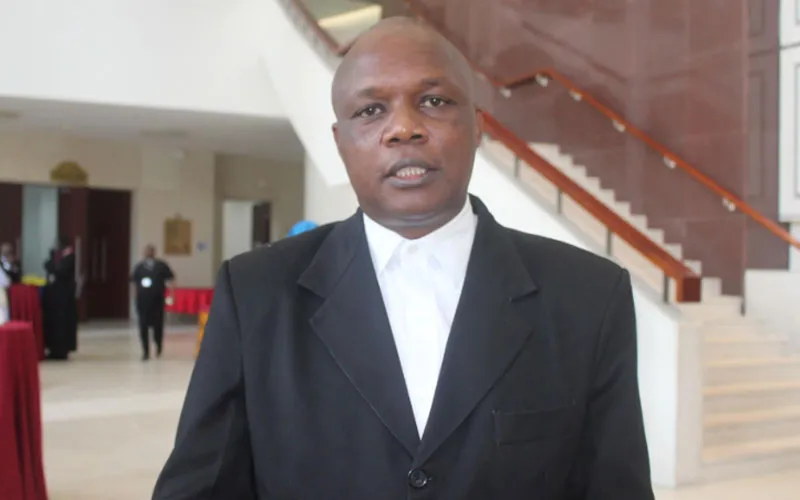Highlighting the weakness of self-assessment and assessing others in the study, Mr. Makinda said, “There are people who know too much but are so humble they’d say they don’t know much. Others who know very little would claim to know too much. But the study findings are pointing towards a picture that there are low levels of awareness.”
In an interview with ACI Africa on the sidelines of the 20th AMECEA Plenary Assembly, Mr. Makinda expressed concern that though Laudato Si’ had existed for seven years, there were people who were not aware of it. He said, “This means that dissemination has not been done to the letter.”
He further expressed concern that those who were responsible for its dissemination were the ones who admitted to not being ware that it existed.
“The most interesting finding is that some of the people that are expected to know about the document and to disseminate it to the people are the ones that are indicating that they are not aware of it,” he said, and added, “This was a quantitative study with boxes to tick indicating awareness. And some people ticked that they are not aware of it, meaning that they have never heard of it.”
He said a question such as ‘Do you know Laudato Si’ attracted the response ‘No’, noting that some respondents thought the term “Laudato Si’” was a form of greeting.
(Story continues below)
“The percentage may look small but it is worrying when it is the pastoral agents that are expected to be the ones relaying it downwards,” the Kenyan delegate to the AMECEA Plenary that has brought together over 100 Catholic Bishops from the countries of AMECEA told ACI Africa.
He said that JPC officials’ understanding of Laudato Si’ ought to have been examined at recruitment to equip them with knowledge that they would in turn disseminate to the people.
Mr. Makinda blamed what he referred to as a poor reading culture among Africans for the lack of awareness of the Laudato Si’ among some Catholics in the MECEA region.
“It has been said that if you want to hide something, hide it in the book. Africans are highly oral. They’d rather listen to stories than read,” he said.
He added that AMECEA is a large region, noting that some places in the region are “very remote, some without internet connection to access documents.”
The official noted that Laudato’ Si’ had been accepted widely, with non-Catholics joining its implementation in the region.
“Laudato Si’ is the second Encyclical in the history of the Church that is talking about social issues that have been addressed to the whole world. Laudato Si’ is therefore not only a document addressed to the Catholics. It is addressed to the whole humanity,” Mr. Makinda said.
He said that many people across the world have picked the Laudato Si’ document up, adding, “Laudato Si’ movements in schools bring together young people regardless of their religion.”
To increase awareness of the Encyclical Letter, the researcher suggested that engagement with the document takes the format of the Synod on Synodality that is implemented from the grassroots.
“We are recommending that Laudato Si’ be treated the same way the Synod on Synodality has been treated,” he said.
Mr. Makinda explained, “Engagement should be taken to the grassroots. SCCs would be engaged. We found this in the Archdiocese of Nairobi where at least every small Christian community has two JPC commissioners who champion for Laudato Si’ in the small Church groups.”
Agnes Aineah is a Kenyan journalist with a background in digital and newspaper reporting. She holds a Master of Arts in Digital Journalism from the Aga Khan University, Graduate School of Media and Communications and a Bachelor's Degree in Linguistics, Media and Communications from Kenya's Moi University. Agnes currently serves as a journalist for ACI Africa.








